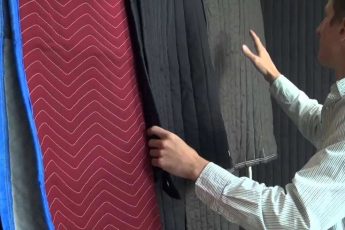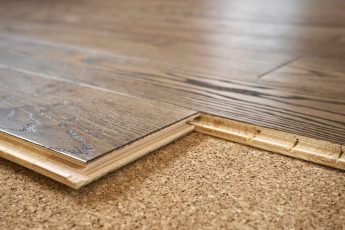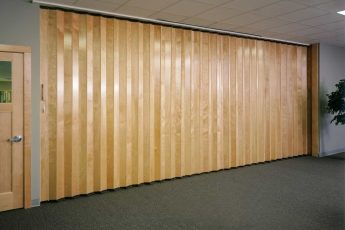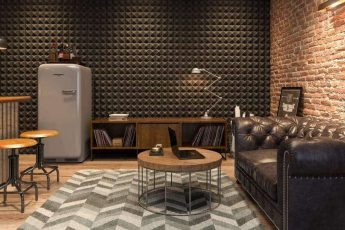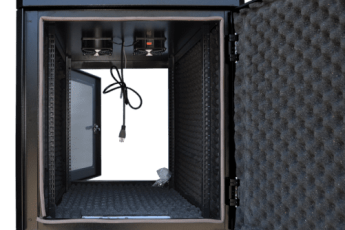If you’re a homeowner who’s tasked with the noise of an outside air conditioner, there are a few ways you can minimize its effects. These include utilizing sound-absorbing blankets and bushes, soundproofing your home, and installing earplugs. If these techniques aren’t enough, there are other measures you can take, such as installing a sound-proof wall or sound-proofing your house.
Planting bushes
Planting bushes and shrubs near an outside air conditioner can help you reduce noise. They absorb sound waves and have a visual benefit as well. Dense plants can reduce noise while blocking out traffic noise. They can even balance a cold fence visually. These tips can help you minimize the noise from your air conditioner.
If you have a sunken outdoor living space, you can plant bushes or trees that have narrow, curly or cupped leaves. These plants can help block the noise, but they need space to grow. For this reason, you can’t plant them too close to the outdoor air conditioner. In addition, the plants must be pruned regularly so they don’t interfere with the system.
The effect of plants on noise reduction is controversial. Some believe that noise reduction by plants is due to psychological effects. However, a study by the U.S. Federal Highway Administration suggests that plants can reduce noise levels by as much as 30 decibels. The researchers found that the presence of plants reduces noise levels by reducing the source of noise. They also found that plants with larger leaves were better at reducing noise than plants with lighter leaves.
Planting bushes around your outside air conditioner can reduce noise by a couple of decibels. However, they must be tall and dense enough to block out the noise. Most people don’t have the space to plant a dense wall of trees. You must also be close to the noise source to minimize the noise. If your trees are too far away from the source, they won’t make a significant difference.
Using earplugs
When it comes to noise reduction, using earplugs is an excellent choice. The soundproof earplugs on the market do not completely block out the outside air conditioner’s noise, but they can help to reduce the noise. Some earplugs are more effective at reducing noise than others. Buying the best earplugs depends on the noise reduction you are looking for and your ear canal size. Using the correct earplug can help to keep your hearing intact and allow you to focus on your work.
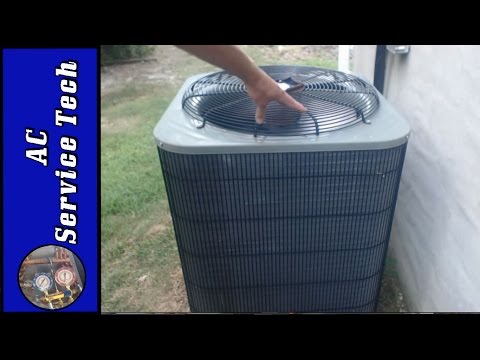
When choosing an earplug, look for one with a high noise reduction rating and a comfortable fit. Many earplugs are soft and won’t cause pain or discomfort. Some are washable and reusable. Make sure that they are clean before using them, as they can develop bacteria in your ear. A good pair of earplugs has a NRR rating of 32 or higher.
Earplugs are an affordable and comfortable solution for noise reduction. They block out the background noise without causing discomfort and are comfortable for extended use. Unlike foam ear plugs, which tend to be uncomfortable and won’t fit your ears well, earplugs made from a universal filter can reduce noise while still allowing you to hear important sounds around you.
Earplugs are also effective when it comes to reducing the loudness of rock concerts. Research shows that people who wear them at night are more likely to get a better night’s sleep. However, the downside of earplugs is that they prevent the ear canal from allowing the wax to exit, which could lead to a buildup of earwax and an increased risk of ear infections.
Soundproofing your house
There are a few ways to reduce the noise from your outside air conditioning system. You can choose to install thicker walls to block outside air, or you can opt for acoustic tiles or window inserts. Soundproofing your house can also save you money on your heating and cooling bills.
For a better soundproofing effect, you can also cover windows and doors with mass loaded vinyl. This vinyl is heavy and requires screws or nails to adhere. Another great option is to use a live fence around your AC unit, with plants that grow over it. This will help reduce noise while providing decoration.
If your home is newer, you can opt for permanent soundproofing measures. You can also choose from a variety of temporary solutions. You can even try removing the air vent altogether – it’s an inexpensive and effective way to reduce noise from outside air conditioning systems. Regardless of the method you choose, you’ll find that these measures don’t make much of a difference if you’re not willing to put up a significant amount of money.
The best way to reduce noise from outside air conditioning systems is to soundproof your house. This will be the most affordable option, but it will require a greater investment. Noise from the outside air conditioning system will usually enter your home through a window, and windows are the weakest point in soundproofed walls. The STC rating of a window is often lower than the STC rating of your walls.

Besides insulating walls, you can also soundproof your ceilings with batts. These batts will absorb the noise that would otherwise travel through the air pockets. In addition to this, installing metal wall studs will also help reduce sound. Using two-inch metal studs can have an STC of 45.
Sound-absorbing blankets
Sound-absorbing blankets are a cheap way to reduce the noise coming from an outside air conditioner. They absorb up to 40% of the noise made by the compressor. They are also safe to use in air conditioners, since they don’t affect the performance of the air conditioner. However, you should choose a blanket that is appropriate for the unit you’re using.
These blankets are made to fit most common surfaces and are a low-cost solution to the problem of outside air conditioner noise. They are also fire-resistant. Unlike acoustic drywall, sound-absorbing blankets don’t compromise the compressor’s performance.
Sound-absorbing blankets can be used to reduce noise from any type of air conditioner. They are inexpensive and easy to install. Once installed, they begin to reduce noise right away. They also come with all of the accessories you’ll need for proper installation. Some people worry that using a blanket will affect their A/C unit’s performance. However, this is a common misconception because blankets do not hinder air circulation, which can damage your air conditioner.
In addition to sound-absorbing blankets, there are other ways to reduce the noise from outside air conditioners. You can also frame the unit with a sound-proofing net to block out vibrations and bleeding noise into the room. Another solution is to use sound-absorbing blankets to cover the entire frame of an outdoor air conditioner. These blankets can deaden up to 90% of the noise.
Avoid installing AC units near reflective surfaces
It’s important to avoid installing AC units near reflective surfaces, such as brick walls, as far as possible. This will reduce sound from outside air conditioners by 6dB. Another thing to avoid is placing AC units near narrow hallways. These can cause sound waves to bounce off the walls and cause a loud echoed effect.
If possible, install AC units away from windows and doors. This will help prevent noise from entering the room. Ideally, the condenser unit should be located outside, so that snow and rain do not harm it. Always consult the installation manual before installing the AC unit. This will give you a better idea of the required space between the AC unit and the window or door.

Another effective method of reducing noise is installing a live fence around the AC unit. Plants can absorb sound and are effective in reducing noise from AC units. However, make sure the fence is on stable ground. You should also avoid installing the AC unit in between two walls.
If you have neighbors, you might want to consider installing a sound barrier. This is often a cost-effective solution. However, you must ensure the barrier is well-built and doesn’t block the viewlines of your neighbors. Lastly, you should consider placing the AC unit far away from reflective surfaces, such as cars, buildings, and buildings.

